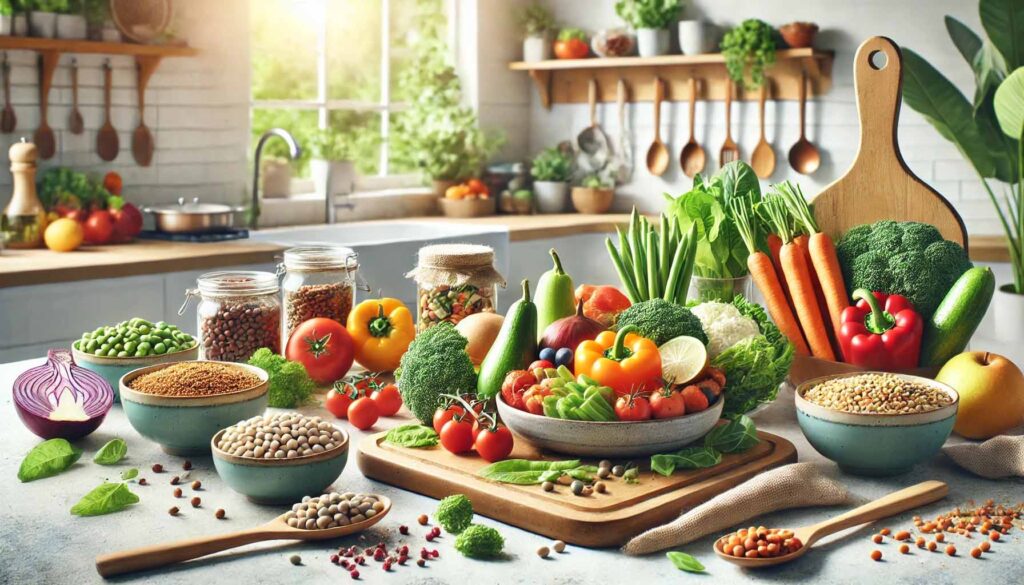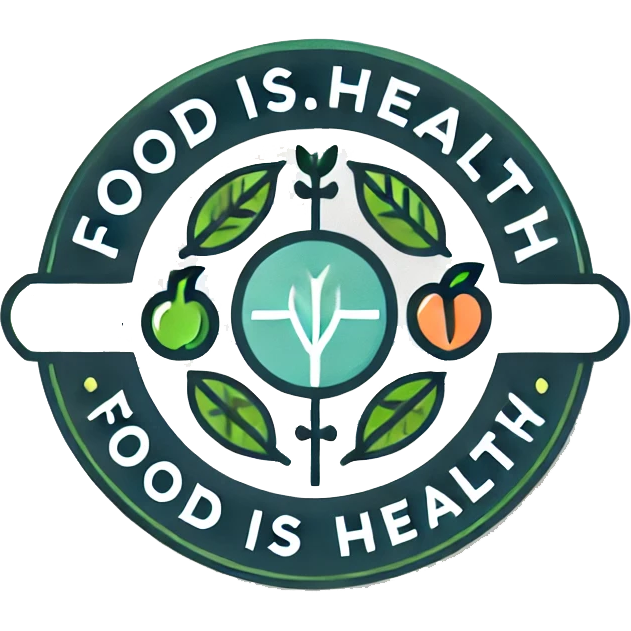Vitamin B12 is an essential nutrient, crucial for maintaining your body’s nerve and blood cells and preventing certain types of anemia. But if you’re following a vegan diet, getting enough B12 can be a challenge. That’s because vitamin B12 is primarily found in animal products like meat, fish, eggs, and dairy. So, if you’re not eating these foods, you need to be mindful about finding other sources of this vital nutrient.
In this guide, we’ll cover why B12 is important, signs of deficiency, and most importantly, the foods and supplements you should consider to ensure you’re meeting your needs on a vegan diet.

Why Vitamin B12 is Important
Vitamin B12 (cobalamin) plays several key roles in the body:
- Red blood cell formation: B12 helps produce red blood cells, and without enough of it, you can develop megaloblastic anemia, which causes fatigue and weakness.
- Nerve function: This vitamin helps maintain the myelin sheath that protects nerve fibers. A deficiency could lead to neurological problems, including numbness or tingling in the hands and feet.
- DNA production: B12 is involved in the creation of DNA, the genetic material in every cell of your body.
- Brain health: Some studies suggest that low B12 levels might be linked to memory problems and other cognitive issues.
A lack of vitamin B12 can lead to serious health problems, especially for vegans who don’t get it from the usual dietary sources. That’s why it’s important to find reliable ways to get enough B12.
Signs of Vitamin B12 Deficiency
Before we jump into food and supplement sources, it’s important to recognize the symptoms of a B12 deficiency. These can include:
- Fatigue and weakness: Feeling unusually tired even after a full night’s sleep.
- Tingling and numbness: A “pins and needles” sensation, especially in the hands and feet.
- Difficulty walking: Trouble balancing or walking steadily.
- Memory loss or confusion: Forgetting things or feeling mentally foggy.
- Mood changes: Experiencing irritability or depression.
If you notice any of these symptoms, it might be time to check with your healthcare provider to see if you’re getting enough B12.
Top Vegan Food Sources of Vitamin B12
Since B12 is not naturally found in plant foods, vegans need to rely on fortified foods or supplements to get enough. Let’s look at the top options:
1. Fortified Plant-Based Milks
Many plant-based milks like almond, soy, oat, and rice milk are fortified with B12. Check the nutrition label to confirm that the brand you’re using includes vitamin B12, as not all do.
- How much B12? A cup of fortified soy milk, for instance, can provide up to 2.4 micrograms (mcg) of B12, which is the recommended daily intake for adults.
- How to include it? Pour it over your cereal, add it to smoothies, or simply drink it on its own.
2. Fortified Nutritional Yeast
Nutritional yeast is a popular food item among vegans because of its cheesy flavor and its B12 content when fortified. This is a versatile option that can be sprinkled over pasta, popcorn, salads, or mixed into sauces.
- How much B12? Two tablespoons of fortified nutritional yeast can provide more than 7 mcg of B12, making it an excellent source.
- How to include it? Sprinkle it on your meals or use it as a flavoring in vegan cheese recipes.
3. Fortified Breakfast Cereals
Several breakfast cereals are fortified with vitamin B12. Brands like Cheerios or Total are good options to consider, but always check the label for confirmation.
- How much B12? Some cereals provide up to 6 mcg of B12 per serving.
- How to include it? Enjoy with fortified plant-based milk for a double dose of B12 at breakfast.
4. Fortified Tofu
Some brands of tofu, particularly those that are pre-seasoned or marinated, are fortified with B12. As with other fortified products, it’s important to check the packaging.
- How much B12? A serving of fortified tofu can provide a portion of your daily B12 needs.
- How to include it? Use tofu in stir-fries, salads, or scrambles to keep your meals interesting.
5. Fortified Plant-Based Meats
Many plant-based meat substitutes, like those from Beyond Meat or Impossible Foods, are fortified with B12 to mimic the nutritional profile of their animal-based counterparts.
- How much B12? A typical serving of fortified plant-based meat can provide around 2.4 mcg of B12.
- How to include it? Use these products in place of traditional meat in your favorite recipes, such as burgers, tacos, or spaghetti.
B12 Supplements: A Reliable Option
Even with fortified foods, it can be difficult for vegans to consistently meet their B12 needs. That’s where supplements come in. Vitamin B12 supplements are widely available and come in various forms:
- Cyanocobalamin: This is the most common and affordable form of B12 supplement.
- Methylcobalamin: A more bioavailable form, meaning it’s easier for your body to absorb.
- Sublingual tablets: These dissolve under your tongue and are absorbed directly into the bloodstream.
How much B12 should you take?
- For adults, the recommended daily intake is 2.4 mcg, but higher doses are often recommended for vegans.
- Many supplements offer doses of 500 mcg to 1000 mcg, which might seem high but is considered safe because your body will absorb only what it needs and excrete the rest.
How to choose a supplement:
- Look for supplements labeled “vegan” to ensure they are free from animal products.
- Liquid, chewable, and pill forms are all effective, so choose the one that’s most convenient for you.
Can I Get Enough B12 from Natural Vegan Foods?
One of the common misconceptions is that certain seaweeds, mushrooms, or fermented foods like tempeh contain enough vitamin B12. However, these foods don’t provide a reliable source of active B12, the form your body needs. That’s why fortified foods and supplements are a safer, more reliable way to meet your B12 needs on a vegan diet.
Wrapping It Up
Vitamin B12 is crucial for anyone following a vegan diet, as it supports nerve function, red blood cell production, and overall health. While getting enough B12 may seem challenging, there are plenty of fortified foods and supplements that can help you meet your needs. By including options like fortified plant-based milks, nutritional yeast, cereals, tofu, and plant-based meats in your diet, and considering a supplement, you can easily avoid deficiency and stay healthy on a vegan lifestyle.
If you’re ever unsure about your B12 intake, talk to a healthcare provider, who might recommend testing your levels and adjusting your diet or supplement routine accordingly.
Make sure to check out more articles in our News & Views section. Feel free to reach out any time to collaborate with Food Is Health on projects which help people heal through natural food & nutrition.
Organic vs Conventional Food | Food Preservatives & Additives | Anti-Inflammatory Diets | Gut Health & Probiotics | Plant-Based Diets | Detox Diets & Cleanses | Food Allergies & Sensitivities Functional Foods | Sustainable Eating & Food Waste | Ag Related Topics | Popular Topics
